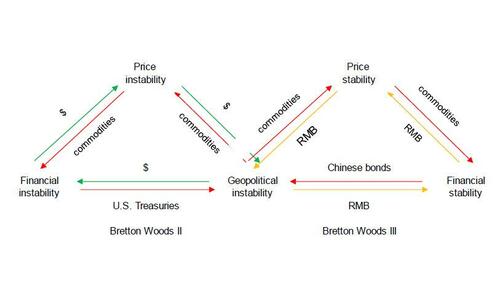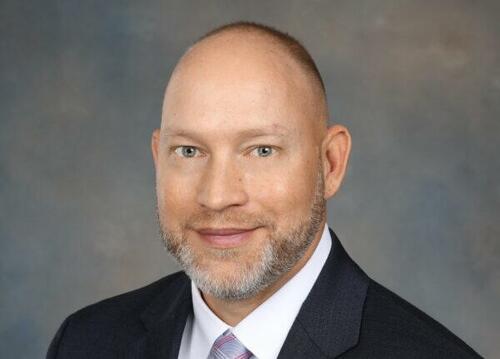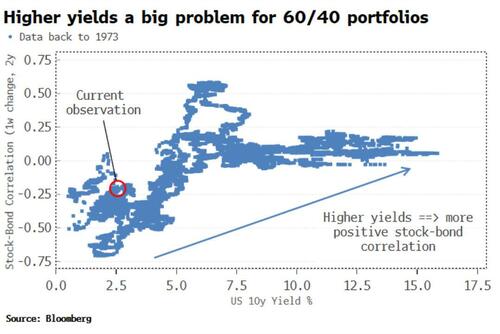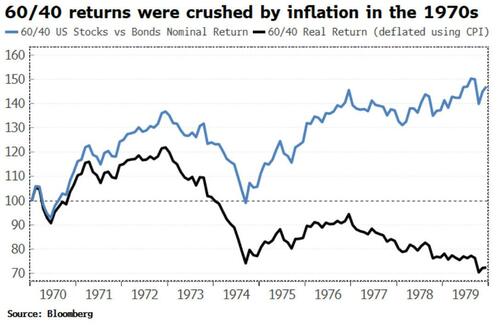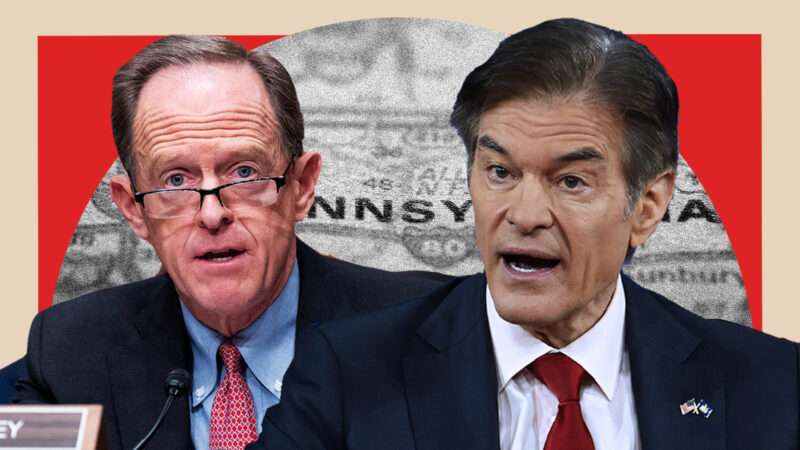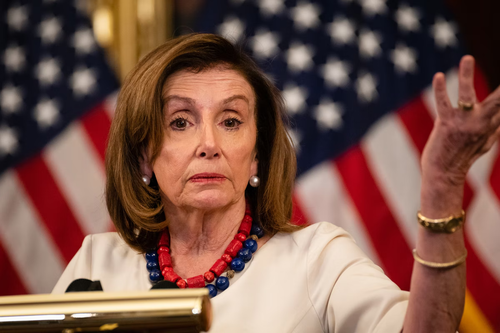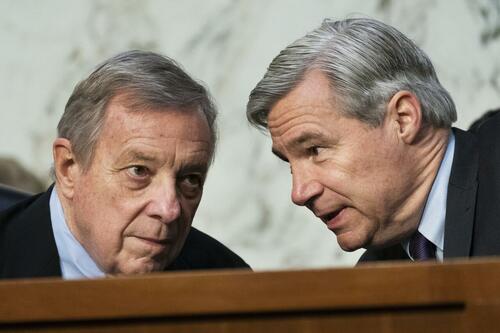Usually, when a twice-elected senator retires from politics, at least some of the candidates hoping to fill his seat will attempt to position themselves as the heir apparent—the one man or woman who can hold the coalition together and continue the party’s winning streak.
And in Pennsylvania—a crucial swing state that could determine the Senate majority next year—a place where Sen. Pat Toomey is the only Republican to win multiple statewide elections since the start of the Obama administration, you might expect someone to try to follow in his footsteps. Or at least say something nice about him once in a while. But when six of the GOP candidates hoping to replace Toomey met for a forum in the suburbs of Harrisburg last weekend, they barely mentioned Toomey’s name at all—and when they did, it was only to complain.
Toomey engaged in “the ultimate betrayal” when he voted to convict former President Donald Trump for Trump’s role in instigating the January 6, 2021, riot at the U.S. Capitol, declares Sean Gale near the end of the forum, in which each of the Senate hopefuls was asked about his or her views on Big Tech, Supreme Court nominee Ketanji Brown Jackson, China, and America’s most recent ex-president. (The field is nearly unanimous in holding unfavorable views about the first three, but strongly favorable opinions of the fourth.)
Per the agreed-upon rules of the forum, the six candidates are forbidden from attacking one another directly—so Gale turns his fire toward someone who isn’t present. He says the Pennsylvania Republican Party shirked its responsibility by refusing to censure Toomey—as other state parties did to Republicans who supported impeachment, like Rep. Liz Cheney (R–Wyo.)—and wraps up by declaring that Toomey is no better than Arlen Specter, the Republican-turned-Democrat who Toomey, then a hero to Pennsylvania conservatives, helped oust from the Senate in 2010.
It’s a blustery day outside, but you don’t have to leave the confines of the Penn Harris Hotel to judge which way the political winds are blowing.
“President Donald Trump is the best president this country has ever had,” Gale bellows. He’s not the only candidate to earn applause for expressing that sentiment during the event.
Gale is a fringe candidate whose campaign is more noise than substance. Even so, his blistering attack on Toomey is revealing—mostly because of what wasn’t said. If not for Gale, the 90-minute forum would have passed without a single mention of the twice-elected sitting Republican senator with a long track record of supporting conservative policies and deep ties to the very political convention where the event was taking place. While the six candidates on stage tripped over one another to prove their MAGA bona fides, none of them made even an implicit attempt to frame their candidacy as a third term for Toomey. Each professed a desire to win Trump’s endorsement; none even mentioned the current senator—except to call out his “ultimate betrayal” of the former president.
Toomey is the negative space in the Republican primary in one of the most important Senate races in the country. You can see the outline of what a pre-Trump conservative candidate in a purple state would look like by drawing a line around everything that this GOP primary field—which includes a television personality, a real estate mogul, a former state boxing commissioner, and a hedge fund CEO—isn’t.
None of this is unique to Toomey, or to Pennsylvania. Republicans in Congress who voted to impeach Trump are either gone from the national stage or on their way out (with perhaps the rare exception of Sen. Mitt Romney in Utah).
More broadly, Toomey’s retirement and the clown car of candidates seeking to replace him are a useful microcosm for understanding the demise of the longstanding conservative-libertarian alliance on the political right—and the political staying power that the defeated former president has within conservative circles. Someone is going to win the Republican nomination for Senate in Pennsylvania, but it’s not going to be someone capable of filling Toomey’s shoes.
In fact, they’re not even trying.
***
Any politician who doesn’t die in office eventually outlives his or her welcome with the voters. And the conservative activist class has been particularly quick to turn on its one-time darlings in recent years—particularly when an incumbent appears to have sold out his values or tarnished his voting record.
What’s happened with Toomey is a little different.
As a congressman in 2004, Toomey nearly toppled Specter in a Republican primary battle that was a prelude to the “tea party” insurgency later in the decade. Toomey, then 42, was described in a New Yorker profile of the race as “a conservative Republican of rigorous doctrinal purity: anti-abortion, anti-taxes, anti-spending (except for defense); a fiscal hawk, appalled by big deficits, a crusader for school choice, tort reform, Social Security privatization, and a smaller federal government.” With the backing of then-President George W. Bush, Specter won a narrow victory. Six years later, with primary polls showing Toomey leading a potential rematch by a wide margin, Specter switched parties in the hopes of preserving his spot in the Senate. He failed.
That background is essential to understanding the Toomey-shaped hole at the center of this year’s Pennsylvania Leadership Conference (PLC), an annual gathering in the Harrisburg suburbs that attracts hundreds of conservative activists, politicians, and personalities, along with plenty of would-be and has-been officeholders. Think of it as the Keystone State’s equivalent of the Conservative Political Action Conference (CPAC), the national gathering that’s been a launching pad for the political careers of just about every anti-establishment Republican since the Bush era.
But while CPAC has become an increasingly cartoonish bacchanalia dominated by fringe elements of the right wing, the PLC mostly remains a meat-and-potatoes gathering of conservative activists focused on policy rather than personalities.
It’s a little weird, as all such gatherings are. It’s the type of place where you’re likely to turn away from a conversation about the importance of the 10th Amendment and bump into someone wearing a Trump T-shirt and hawking fake hand grenades full of hot sauce (an experience I had this weekend). But this isn’t a MAGA rally by any means; even on a Saturday morning, there are far more suits and ties wandering around than there are red baseball caps.
For decades, this has been—or at least was—very much a home game for Toomey. Fresh off his near-miss against Specter, Toomey gave the keynote address in 2006. He delivered another keynote at the conference in 2009 just prior to announcing his bid to challenge Specter again. Lowman Henry, president and CEO of the Pennsylvania Leadership Council, the nonprofit that organizes the event, estimates that Toomey has made more than 10 appearances over the years.
Once the recipient of thunderous applause in the main ballroom, now it’s difficult to get anyone to talk about him—and not just on stage. Privately, many longtime conservative activists gathered at the PLC this past weekend will praise Toomey’s principles and voting record. Some will even say they agree with his vote to convict Trump for January 6—but such statements are kept off the record and uttered only in hushed tones.
If Toomey has sold out, though, it doesn’t show up in his voting record. Toomey’s votes during the most recently concluded session of Congress were more conservative than fellow Sens. Marco Rubio (R–Fla.) and Tom Cotton (R–Ark.), according to Voteview, a project of political scientists at UCLA, the University of Georgia, and New York University that attempts to rank members of Congress ideologically based on their voting records. Toomey has been ranked as one of the 10 most conservative senators in every session since 2010, according to Voteview’s analysis. He was a proponent of Trump’s failed attempt to repeal Obamacare and helped write the 2017 Trump tax cut bill—but he also voted against using public funds to build Trump’s border wall and was one of the Senate’s most vocal critics of Trump’s tariffs and other anti–free trade policies.
All of that is in line with small-government principles, but those principles occasionally clashed with Trump’s agenda.
Toomey’s always been a “strong fiscal conservative,” says Kurt Schlichter, a former Republican state lawmaker who now runs the Pennsylvania Coalition for Civil Justice Reform, a legal policy nonprofit. But, he adds, “the political landscape in Pennsylvania has shifted” under the senator’s feet.
Perhaps that’s why conservative activists no longer see Toomey as one of their own. An April 2021 survey of 3,000 political activists—that is, people who had been local party chairs, run for elected office, been paid political staffers, attended political rallies, or donated to a campaign—conducted by FiveThirtyEight, HuffPost, and YouGov found Toomey rated as one of the most liberal Republicans in the Senate.
“A politician’s support for Trump has come to define who party activists think of as conservative,” wrote Dan Hopkins, a professor of political science at the University of Pennsylvania, in his analysis of that poll for FiveThirtyEight. Along with Toomey, Sens. Mitt Romney (R–Utah) and Ben Sasse (R–Neb.) were similarly rated as fairly liberal despite their conservative voting records. Meanwhile, the activists polled ranked Trump as more conservative than all but 10 of the politicians in the survey, “despite his ideological heterodoxies,” Hopkins noted.
That fits with Gale’s attack on Toomey. The senator’s “ultimate betrayal” was not the selling out of his principles or his ideology, but his willingness to vote against the interests of Trump—even though Trump was already out of office when the second impeachment trial occurred, and even though Toomey’s vote changed nothing about the outcome of the proceeding (Trump was acquitted).
“The impeachment vote aside, I’ve always said I don’t know how you elect a more conservative senator than Pat Toomey in Pennsylvania,” says Henry. “And if you look at his record he is one of the most conservative members of the United States Senate.”
But the impeachment vote can’t be set aside, it seems. Toomey, who declined to be interviewed for this piece and has avoided commenting on the race to determine his replacement, had already announced in October 2020 that he wouldn’t be seeking reelection, so it’s not accurate to say that the impeachment vote ended his career. If anything, Toomey was freer than many of his colleagues to vote his conscience about the events of January 6.
For what it’s worth, Toomey has publicly disputed the notion that Trump has altered the very definition of what it means to be a conservative.
“People know that in Congress and in the Senate there have been Republicans who have been, let’s say, much more deferential and loyal to Donald Trump than I’ve been. People get that,” Toomey told The Philadelphia Inquirer earlier this year. “Donald Trump has been seen as arguably one of the most aggressive and vigorous warriors against the left, and he was joined in battle. And so to some degree, the guy that’s taking the fight to the other side most aggressively, it’s easy to have a shorthand if the only choice you give a respondent is, ‘Is he conservative?'”
But there’s little doubt that whoever emerges from the seven-way contest to become the GOP Senate candidate in Pennsylvania will have more in common with Trump than with Toomey.
***
The Republican primary on May 17 will determine which of the seven GOP candidates in the field will be trusted to defend Toomey’s seat in November. That’s an open seat in a swing state in a year when the Senate is divided 50–50, so it’s not a stretch to say that Pennsylvania voters might very well get to determine the Senate majority for the next two years.
To put it mildly, the race is not a contest to see who can be the biggest critic of big government.
Indeed, Saturday’s candidate forum kicked off with a question from Pittsburgh-area talk radio host Rose Tennent that seemed to reject out of the hand the idea that conservatives should seek to shrink government at all. “Big Tech definitely needs to be held accountable,” Tennent told the candidates. “What would you propose to do, if you were elected, to break up that monopoly?”
“The only way for us to fight back is to take out Section 230,” said Mehmet Oz, the longtime host of The Dr. Oz Show, referring to the portion of the 1996 Communications Decency Act that is widely considered “the internet’s First Amendment,” because it ensures that websites can allow users to communicate freely without fear of being held legally responsible for what might be posted. These days, some conservatives (incorrectly) blame Section 230 for allowing social media companies like Twitter to remove posts or ban users—like, for example, a certain former president—even though there is nothing in the law that mandates viewpoint neutrality from online platforms. It is a rare situation where the culture war feuding that drives much of contemporary conservative politics intersects with actual policy.
Oz doesn’t elaborate on what an internet without Section 230 might look like—but, after all, miracle cures have always been his schtick. He claims the law was written “to ostensibly protect new companies that were like fax machines so they weren’t responsible for the paper coming out of their machines.” Seemingly aware that this makes little sense, Oz quickly pivots to argue that Section 230 “has been used and weaponized” to allow “sex trafficking children, because they can hide behind Section 230″—though it is never exactly clear who “they” are. One gets the sense that Oz’s candidacy is not based on a deep or thoughtful understanding of federal telecommunications policy.
With his background in television, his tenuous grasp of policy, and his ability to bullshit his way through any topic while seeming charming, Oz is at first blush the obvious quasi-Trump in the field. But there’s actually robust competition for that title. Carla Sands, a former soap opera actress and California socialite who married real estate mogul Fred Sands and took over as CEO of his empire when he died in 2015, is eager to remind the crowd that she was Trump’s pick to be ambassador to Denmark (too bad for her that deal to buy Greenland fell through). During the forum, she draws a big round of applause for calling Facebook CEO Mark Zuckerberg and Twitter founder Jack Dorsey “modern-day totalitarians” and later declares that “there is no doubt Donald Trump was the greatest president in our country’s history.”
When policy and principles are sidelined, politics is about little more than personality. Sands and Oz have plenty of it, and since there’s no voting record or signature set of policy ideas for which they can be attacked, their opponents are mostly left to point out the fact that neither of them is much of a Pennsylvanian.
Oz resides in New Jersey, though he’s claimed throughout the campaign to be living at his parents’ home in the Philadelphia suburb of Bryn Mawr. Sands is the prodigal fresh princess of Bel Air—she was born and raised in Pennsylvania but spent most of her days since 1987 in California. She recently sold her homes in Malibu and, yes, Bel Air and bought a condo overlooking the Pennsylvania Capitol in Harrisburg, according to the Associated Press.
There’s a third carpetbagger in the race too: David McCormick, a veteran of the George W. Bush Commerce Department who now runs hedge funds after stints at McKinsey and Bridgewater, high-powered films with loads of political connections. He’s a resident of Connecticut and the only candidate not to appear on the PLC stage—prompting the others to sling barbs about how there must be too much traffic today. He’s the leader in the polls, though a seven-way primary race is difficult to poll accurately, and both Oz and Sands could also lay claim to being the front-runner.
There’s also George Brochette, the former Pennsylvania boxing commissioner, who proudly reminds the assembled crowd that he was one of the lawyers who helped organize Trump’s legal defense during his second impeachment trial. And Kathy Barnette, the Army vet and Fox News commentator who narrowly lost a Pennsylvania congressional race in 2020. And there’s Gale, the attorney who condemns Toomey and pledges to be a “disruptive force” in the Senate by modeling himself after Sen. Ted Cruz (R–Texas).
In more normal times, this might be Jeff Bartos’ race to lose. A real estate developer from the Philadelphia suburbs and a longtime Republican fundraiser who is coming off an unsuccessful bid for lieutenant governor in 2018, Bartos says he would welcome Trump’s endorsement wholeheartedly, but his campaign has an old-school vibe to it. He raised millions of dollars to help small businesses hurt by COVID-related lockdowns and talks a lot about the importance of community, a nice throwback to when Republicans valued individual action over state power.
But he’s not shy about using state power, either. “We must remove Section 230 or we should otherwise break up Big Tech companies through the antitrust process,” he says.
It’s also worth mentioning that one of the reasons why the field is so wide open—and why each of the candidates is angling so hard for Trump’s favor—is because Trump’s endorsed candidate, Sean Parnell, dropped out of the race in November after allegations of spousal abuse leaked out during a messy divorce proceeding. Like I said: clown car.
“None of the Senate candidates are pitching themselves as [Toomey’s] heir apparent because the Trump base, in particular, is in an uproar over Pat’s votes on impeachment,” Henry, the PLC organizer, helpfully summarizes.
Fine. But is it too much to ask for one of them to try to be something other than a facsimile of Trump?
Toomey was an avatar for the strand of small-government conservatism that briefly dominated the Republican Party in the wake of the Bush presidency. That strand might be properly understood as the final form of fusionism; the last evolution in the decadeslong alliance between the cultural conservatives and free marketers who originally joined forces during the Cold War. Now, in the wake of the Trump presidency, it seems there’s little or no room in the Republican tent for those voices. That’s a loss for libertarians, who could rely on politicians like Toomey to be, at least most of the time, skeptical about exercising state power and growing the size and cost of government—even if it meant putting up with less than ideal social policy in some cases. It means fewer voices in Washington willing to stand up for values like free speech and the importance of free markets.
But it’s likely also a loss for conservatives, who are discarding a vital part of their political coalition in order to chase the dragon of Trump’s narrow 2016 victory. Yes, Trump was the first Republican to win a presidential race in Pennsylvania since Ronald Reagan. But he lost one too. In a place where Republicans generally have to fight an uphill battle to win statewide elections, Toomey is one of only two members of his party who have won multiple statewide contests in the 21st century. (The other is Tom Corbett, who was elected twice as attorney general in 2004 and 2008 before winning one term as governor in 2010, but he’s perhaps even less of a Trumplike figure than Toomey is.)
Isn’t that a model worth considering when control of the U.S. Senate is at stake?
I asked Schlichter to engage in a thought experiment: If Toomey were a member of Congress with his exact same opinions and voting record—including the impeachment vote against Trump—and he were now one of the candidates running for this open Senate seat, against this field of competitors, would he have a chance of winning the GOP nomination?
“Whether he could win today,” the former state representative pondered for a moment, subconsciously stroking his mustache. “I’m just not sure.”
The post From Pat Toomey to Dr. Oz: The Pennsylvania Senate Race Reflects the GOP's Decent Into Madness appeared first on Reason.com.
from Latest https://ift.tt/aSCXnJT
via IFTTT

